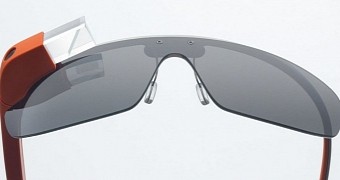Our rumors about a possible future Google Glass were ultimately true and apparently, Google disclosed the name of its next Google Glass device called EE (Enterprise Edition), according to 9to5Google.
To ensure that the new device will sell in profitable numbers, Google designed the Glass only for companies and not the end users. Reasons for that being that privacy matters most for regular consumers, while companies and state services actually need the level of connectivity and supervision the Glass offers for feedback and general overseeing of their employees.
From our previous speculation based on FCC filing specs, we concluded that it will feature Bluetooth LE support and 802.11a/b/g/n/ac WiFi capabilities in both 2.4GHz and 5GHz together with an AC charger for your batteries.
However, lately sources speaking with 9To5Google, said that Google Glass Enterprise Edition will sport an Intel Atom CPU which will be churn out slightly more performance than the previous chip.
Considerably improved tech for companies
Also, it appears that the new Glass will feature a larger "prism" that will display the "screen" right over one of your eyes covering more of your field of view and offering a clearer image. To confirm the battery AC addition, Google confirms that it'll have an improved battery life and for even more power availability an optional external battery pack will also be made available at some point.
Battery life was one of the biggest issues for workplace applications with the Explorer Edition, and the Mountain View company won't let Enterprise Edition hit the workplace without at least some improvement. Also, heat management and overall performance of the new chip is promised to be much better in the new version.
Talking about battery life, its new features like Bluetooth and 5GHz WiFi band built almost certainly for video streaming will need extremely robust batteries to really satisfy business consumers, so I won't be surprised if Mountain View spend some big bucks on battery research technology to bring state-of-the-art power supply units to its Glass.

 14 DAY TRIAL //
14 DAY TRIAL //